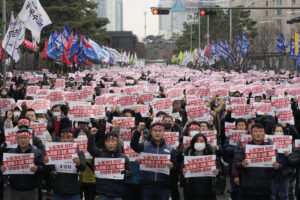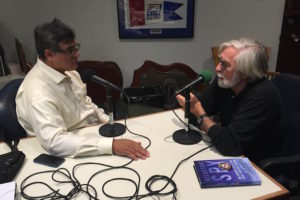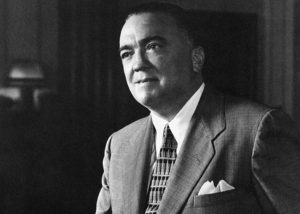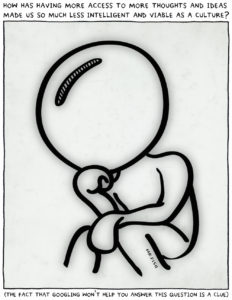Telling the Truth About Iran
Even when George W. Bush tells the truth, he cannot quite bring himself to tell the whole truth.Even when George W. Bush tells the truth, he cannot quite bring himself to tell the whole truth. Although the White House released a new National Intelligence Estimate on Iran’s pursuit of nuclear weapons, indicating that the Iranians shut down their program more than four years ago, the president treated those conclusions as a vindication more than an embarrassment.
With the usual propagandists filtering the NIE to conceal their mistakes, it is worth reproducing a few of the new report’s most salient quotes. “We judge with high confidence that in fall 2003, Tehran halted its nuclear weapons program,” said the NIE text, reflecting a strong consensus among the nation’s 16 intelligence agencies. “Tehran’s decision to halt its nuclear weapons program suggests it is less determined to develop nuclear weapons than we have been judging since 2005.”
Now it is encouraging to learn before, and not after, a military invasion that the vaunted weapons of mass destruction don’t exist, thereby possibly avoiding loss of life, treasure and national reputation. Considering that the Bush regime remains in charge, such a reversal of events can only be regarded as progress.
But the abrupt unveiling of the new intelligence estimate, which so bluntly refutes the president’s recent remarks about “World War III,” raises fresh questions about him and his administration. Actually, they are the same old questions that have plagued us since the invasion of Iraq. What did they know and when did they know it?
And in neither case have those questions been addressed with sufficient candor.
Was President Bush aware of the evidence that Iran had stopped pursuing nuclear weapons — what he calls “a great discovery” by U.S. intelligence — when he made those comments about a third world war in the fall? According to the president, he learned about those findings only a week ago, when the director of national intelligence briefed him. Or so he claimed during his press conference on the subject.
Yet his own national security adviser, Stephen Hadley, told reporters that the president had first learned of the NIE findings “a few months ago” — which means that the White House knew its alarmist rhetoric was wrong as early as late summer. Curiously, The Washington Post reports that U.S. intelligence agencies intercepted information about the discontinued Iranian nuclear program sometime in July, and passed that data on to White House officials, presumably in the National Security Council.
The top officials who knew the truth early on must have included Vice President Dick Cheney, a man notorious for demanding raw intelligence on Mideast issues (and for distorting that information to fit his own policy preferences).
Late in October, the vice president delivered a demagogic speech in Washington on the Iranian nuclear threat. “Our country, and the entire international community, cannot stand by as a terror-supporting state fulfills its grandest ambitions,” he said, adding that Tehran “continues to practice delay and deceit in an obvious effort to buy time.” When he uttered those words, did Cheney believe that he could rewrite or suppress the new NIE?
Trying to understand why both he and the president continued to promote false perceptions of Iran is mystifying. Sometimes their behavior raises real concern about their own capacity to perceive reality — as when the president insisted repeatedly that Saddam Hussein had refused to let U.N. weapons inspectors into Iraq.
Now the president is claiming that his administration reached out to the Iranians in 2003, but that those gestures were rebuffed following the election of Mahmoud Ahmadinejad. His account is wrong, of course. The regime that preceded Ahmadinejad sought better relations with the United States on several occasions between 2001 and 2003 — but neoconservatives in the White House rejected those efforts because they have long cherished the notion of a military strike against Tehran.
So much for those bloody daydreams. There is no way to justify bombing Iran. Although the president declares that the new NIE justifies everything he has said and done and proves that Iran is a danger to humanity, his old policies are discredited and defunct. So is the war rhetoric of Republican presidential candidates like John McCain and Rudolph Giuliani and their advisers.
That doesn’t necessarily mean there is no potential problem in Iran, or that the Iranian leadership will not someday decide to use its nuclear facilities for nefarious purposes. It means that the next president will have to engage Iran in negotiations that will someday lead to normalized relations — and renew the American commitment to nonproliferation.
Joe Conason writes for the New York Observer (www.observer.com).
© 2007 Creators Syndicate Inc.
Your support matters…Independent journalism is under threat and overshadowed by heavily funded mainstream media.
You can help level the playing field. Become a member.
Your tax-deductible contribution keeps us digging beneath the headlines to give you thought-provoking, investigative reporting and analysis that unearths what's really happening- without compromise.
Give today to support our courageous, independent journalists.





You need to be a supporter to comment.
There are currently no responses to this article.
Be the first to respond.